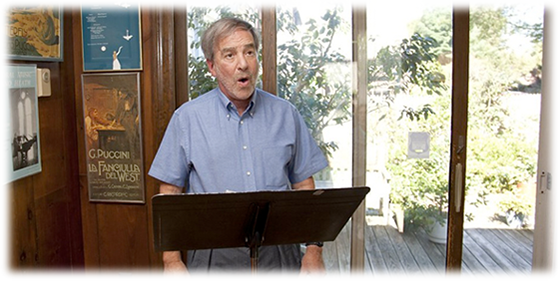These are the required fundamental, musical skills that pertain to reading, writing, listening and understanding music.

BASIC THEORY/MUSICIANSHIP
Youth (8-12 yrs.), teens (13-19 yrs.), and adults
Theory is the language of music. Musicianship (sight singing, ear training, tonal memory) is the practical application of the language of music. Theory/musicianship is critical knowledge and necessary for singers to communicate with other musicians. These are the required fundamental, musical skills that pertain to reading, writing, listening, and understanding music.
Topics included in written theory are: treble and bass clef, names of line and spaces of both clefs, note values, rhythmic notation, time signatures, dynamics, key signatures, major and minor scales, intervals, simple chords, seventh chords and inversions, the grand staff, and simple harmonic analysis.
Musicianship training functions best if taught concurrently with theory. The material will be taught using the voice and the keyboard. Students will be required to bring adequate music paper (staff paper), pencils, and will be asked to purchase a sight singing pamphlet or written theory pamphlet of information. Students will need a keyboard/tuned piano for at-home practice. A tape recorder is also a useful tool for class and home practice.
Basic theory is strongly advised and often mandatory for students who apply to college programs in music and musical theatre. Basic theory is also essential for those singers who wish to: 1) learn more efficiently and effectively and, 2) prepare for auditions, and 3) be eligible to be in more advanced and premier ensembles.
The theory/musicianship lesson will be tailored to the needs, knowledge, and experience of each student.
